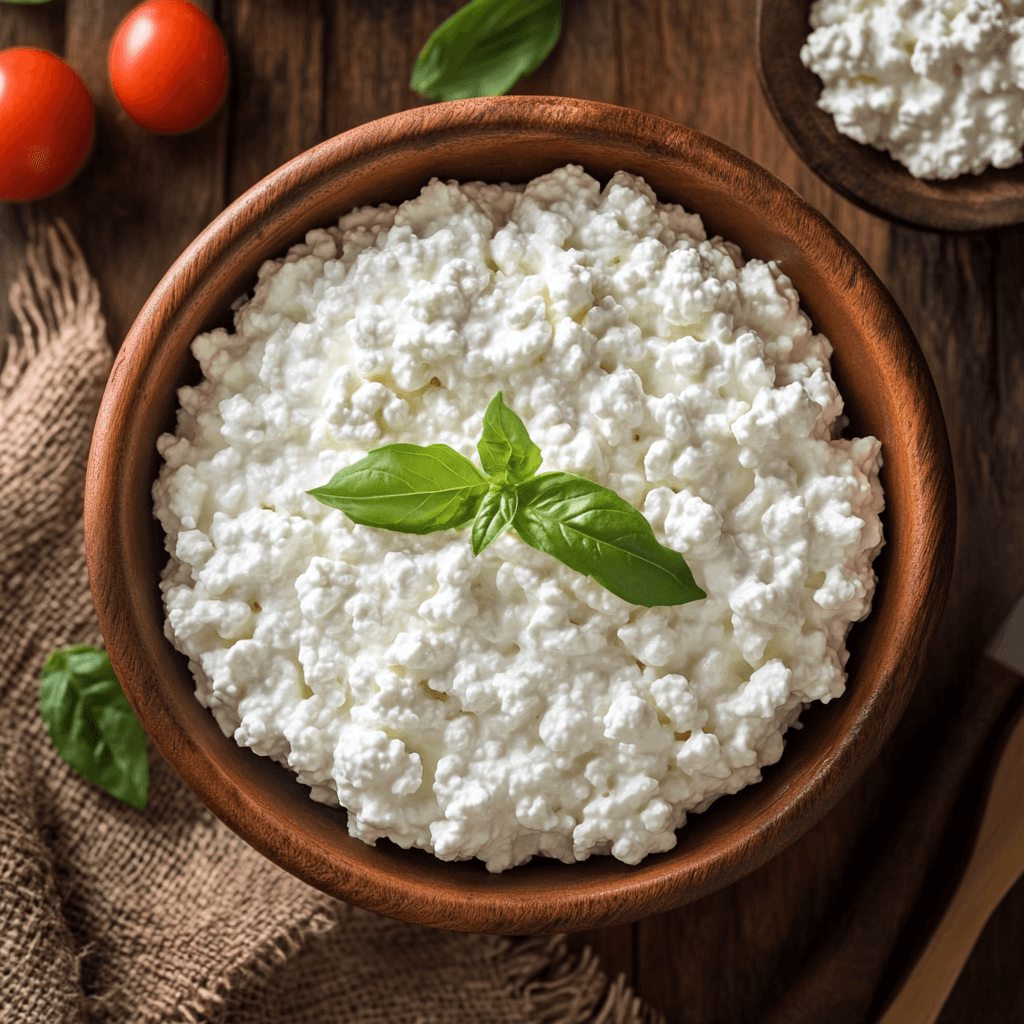How many times a week should you eat cottage cheese?
Cottage cheese is a versatile dairy product that has gained popularity in recent years due to its impressive nutritional profile. Rich in protein, low in fat, and packed with essential nutrients like calcium, it is often hailed as a healthy option for those looking to enhance their diets. However, an important question arises: How many times a week should you eat cottage cheese? This comprehensive guide will explore the benefits, potential drawbacks, and recommended frequency of cottage cheese consumption. Additionally, we’ll provide creative ways to incorporate it into meals and address specific considerations for different demographics and health conditions.
The Nutritional Benefits of Cottage Cheese
Cottage cheese is known for its numerous health benefits, which make it a desirable addition to many diets. Here’s a closer look at why you might want to include it in your weekly meal plan:
High in Protein
One of the most significant advantages of cottage cheese is its high protein content. A typical serving (about half a cup) contains approximately 14 grams of protein. This makes it an excellent source of protein, particularly for:
- Muscle Building and Repair: Protein is essential for muscle growth and repair, making cottage cheese a favorite among athletes and bodybuilders.
- Weight Management: High-protein foods like cottage cheese can increase feelings of fullness, reducing overall calorie intake and aiding in weight loss or maintenance efforts.
Rich in Calcium
Cottage cheese is also a good source of calcium, providing about 10% of the daily recommended intake per serving. Calcium is crucial for:
- Bone Health: Maintaining strong bones and teeth, particularly important for growing children and older adults at risk of osteoporosis.
- Cardiovascular Function: Assisting in normal blood vessel contraction and dilation.
Low in Fat (Especially Low-Fat Varieties)
While full-fat versions of cottage cheese do exist, low-fat and non-fat varieties are popular for those looking to manage their weight without sacrificing nutrition. These options provide:
- Fewer Calories: Making them suitable for calorie-conscious diets.
- Lower Saturated Fat Content: Beneficial for heart health, especially for individuals with cardiovascular concerns.
Probiotics and Gut Health
Certain brands of cottage cheese contain probiotics, which are beneficial bacteria that support gut health. Including probiotic-rich foods in your diet can:
- Enhance Digestive Health: By promoting a balanced gut microbiome.
- Boost Immune Function: A healthy gut is linked to a stronger immune system.
For more creative ways to enjoy cottage cheese and incorporate it into your diet, explore these delicious cottage cheese recipes.
Potential Drawbacks of Consuming Cottage Cheese Regularly
Despite its benefits, cottage cheese is not without its potential downsides. Here are some considerations to keep in mind:
High Sodium Content
Cottage cheese can be high in sodium, with some brands containing as much as 400-500 milligrams per serving. High sodium intake can:
- Increase Blood Pressure: Leading to hypertension and associated risks such as heart disease and stroke.
- Cause Water Retention: Leading to bloating and discomfort.
For individuals on a low-sodium diet, it’s advisable to opt for low-sodium varieties of cottage cheese or consume it in moderation.
Contains Lactose
As a dairy product, cottage cheese contains lactose, which can be problematic for individuals who are lactose intolerant. Symptoms of lactose intolerance may include:
- Bloating and Gas: Due to the inability to fully digest lactose.
- Stomach Cramps and Diarrhea: Resulting from lactose malabsorption.
Lactose-intolerant individuals should consider lactose-free cottage cheese options or consult a healthcare provider for guidance on suitable alternatives.
Saturated Fats in Full-Fat Varieties
While low-fat and non-fat options are available, full-fat cottage cheese contains higher amounts of saturated fats, which can:
- Increase LDL Cholesterol: Potentially raising the risk of heart disease.
- Contribute to Weight Gain: If consumed in excess without balancing other aspects of diet and exercise.
For more insights on how to enjoy cottage cheese while managing these health considerations, check out our guide on healthy ways to eat cottage cheese.
How Often Should You Eat Cottage Cheese?
The recommended frequency of consuming cottage cheese depends on individual health goals, dietary needs, and personal preferences. Here’s a general guide:
General Recommendations
For most people, consuming cottage cheese 2-3 times per week is a reasonable recommendation. This frequency allows you to enjoy the benefits of cottage cheese without overloading on sodium or saturated fats. Here’s why:
- Balanced Nutritional Intake: Including cottage cheese in your diet a few times a week provides a good source of protein and calcium without compromising dietary variety.
- Avoiding Overconsumption: Helps prevent potential issues related to high sodium or saturated fat intake, particularly if you are also consuming other dairy or high-sodium foods.
Recommendations for Athletes and Highly Active Individuals
Individuals with higher protein needs, such as athletes and bodybuilders, may benefit from consuming cottage cheese more frequently:
- Daily Consumption: Athletes may include cottage cheese as a daily snack or post-workout recovery food due to its high protein content, which supports muscle recovery and growth.
- Pre- or Post-Workout: Cottage cheese can be an effective option for fueling workouts or aiding recovery thanks to its balance of protein and carbohydrates.
For athletes following specific dietary regimes, recipes like the Eggplant Chicken Keto Recipe offer a low-carb option that pairs well with cottage cheese.
Considerations for Different Age Groups
Different age groups have varying nutritional needs, which should be considered when deciding how often to consume cottage cheese:
- Children and Adolescents: Growing children and teens may benefit from more frequent cottage cheese consumption due to its high calcium and protein content, which supports bone development and growth.
- Older Adults: As individuals age, the risk of osteoporosis increases, making calcium-rich foods like cottage cheese a beneficial addition to the diet. However, moderation is key, especially for those monitoring their sodium intake.
Role of Cottage Cheese in Different Diet Plans
Cottage cheese is a flexible ingredient that fits well into various diet plans:
High-Protein Diets
For those on high-protein diets aimed at muscle gain or weight loss, cottage cheese is an ideal food choice:
- Low in Carbs: Cottage cheese is low in carbohydrates, making it compatible with low-carb or ketogenic diets.
- High in Protein: Supports muscle building and repair, crucial for those who engage in regular strength training or resistance exercises.
Keto and Low-Carb Diets
Cottage cheese can be a valuable addition to keto and other low-carb diets:
- Keto-Friendly: While not zero-carb, cottage cheese is low enough in carbohydrates to be included in moderate amounts on a ketogenic diet.
- Fat Content Options: Full-fat cottage cheese provides a higher fat option for those looking to maintain ketosis.
For those following a ketogenic diet, exploring recipes like Chicken Breast Recipes for Keto can provide variety while keeping within dietary guidelines.
Vegetarian Diets
As a non-meat source of protein, cottage cheese is a staple in many vegetarian diets:
- Protein-Rich: Provides essential amino acids that may be lacking in a plant-based diet.
- Versatile Ingredient: Can be used in various vegetarian dishes, from salads to main courses.
Creative Ways to Incorporate Cottage Cheese into Your Diet
Cottage cheese can be enjoyed in many ways, adding flavor and nutrition to your meals. Here are some creative ideas:
Breakfast Options
- Fruit and Cottage Cheese Bowl: Combine cottage cheese with fresh berries, a drizzle of honey, and a sprinkle of nuts for a nutritious breakfast.
- Cottage Cheese Pancakes: Use cottage cheese as a base to make protein-packed pancakes. Pair with fresh fruits or a dollop of Greek yogurt.
Snacks and Appetizers
- Savory Dips: Blend cottage cheese with herbs and spices to create a high-protein dip for vegetables or whole-grain crackers.
- Stuffed Vegetables: Use cottage cheese as a filling for stuffed peppers or zucchini, adding flavor and protein to your snacks or appetizers.
Main Dishes
- Cottage Cheese Lasagna: Replace ricotta with cottage cheese in lasagna recipes to reduce fat content while maintaining creamy texture and flavor.
- Baked Casseroles: Incorporate cottage cheese into baked casseroles for added moisture and protein.
For more recipe ideas and ways to use cottage cheese in various dishes, visit our guide on popular cottage cheese recipes.
Who Should Limit or Avoid Cottage Cheese?
While cottage cheese is a nutritious option for many, some individuals may need to limit or avoid it:
Lactose Intolerant Individuals
Those with lactose intolerance should be cautious with cottage cheese:
- Symptoms to Watch For: Include bloating, gas, and stomach cramps.
- Alternative Options: Look for lactose-free versions or consider dairy-free alternatives to cottage cheese, such as almond or soy-based products.
People with High Blood Pressure
Due to its high sodium content, individuals with high blood pressure may need to limit their intake:
- Low-Sodium Varieties: Opting for low-sodium cottage cheese can help reduce sodium intake while still enjoying the nutritional benefits.
- Moderation: Even with low-sodium options, consuming cottage cheese in moderation is advisable to avoid excessive sodium intake.
Those with Cardiovascular Concerns
Individuals with cardiovascular concerns should be mindful of the fat content in full-fat cottage cheese:
- Reduced-Fat Options: Choosing low-fat or non-fat varieties can help limit saturated fat intake, reducing the risk of elevated LDL cholesterol levels.
- Balanced Diet: Incorporating a variety of nutrient-dense, low-fat foods alongside cottage cheese can help maintain cardiovascular health.
FAQs on Cottage Cheese Consumption
How much cottage cheese should you eat per day?
A standard serving size is about half a cup. It’s generally recommended to consume cottage cheese 2-3 times per week for most individuals.
Is it safe to eat cottage cheese every day?
While it’s safe for most people, daily consumption may not be ideal due to its high sodium content. Moderation is crucial, particularly for those with health concerns like hypertension or cardiovascular disease.
Can you eat cottage cheese if you are lactose intolerant?
Individuals with lactose intolerance should opt for lactose-free varieties or consult with a healthcare provider for personalized advice.
What are the signs of eating too much cottage cheese?
Excessive consumption may lead to symptoms such as bloating, increased blood pressure, or nutrient imbalances. It’s essential to monitor portion sizes and overall dietary balance.
Can cottage cheese help with weight loss?
Yes, due to its high protein and low-calorie content, cottage cheese can help maintain satiety and support weight loss efforts, especially when combined with a balanced diet and regular exercise.
Is cottage cheese a good option for a post-workout snack?
Absolutely. Cottage cheese is rich in protein, which is essential for muscle repair and recovery. It’s also a good source of casein, a slow-digesting protein that can help maintain muscle mass.
What are some low-carb recipes that include cottage cheese?
Recipes like Chicken Breast Recipes for Keto are excellent options that incorporate cottage cheese while maintaining low-carb principles.
Conclusion
Cottage cheese is a versatile and nutritious food that offers several health benefits, particularly when consumed in moderation. It can be an excellent source of protein and calcium, beneficial for muscle maintenance, weight management, and bone health. However, it’s essential to balance cottage cheese with other nutrient-rich foods and consider any dietary restrictions or health concerns.
By thoughtfully incorporating cottage cheese into your diet, whether through creative recipes or as part of a balanced meal plan, you can enjoy its benefits while maintaining a healthy lifestyle. For more ideas on how to use cottage cheese, explore our collection of delicious cottage cheese recipes.







